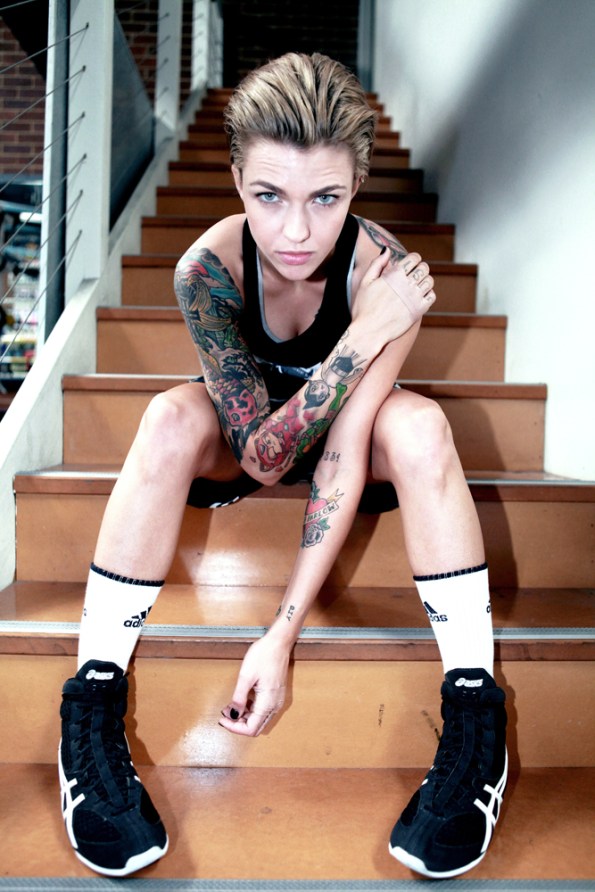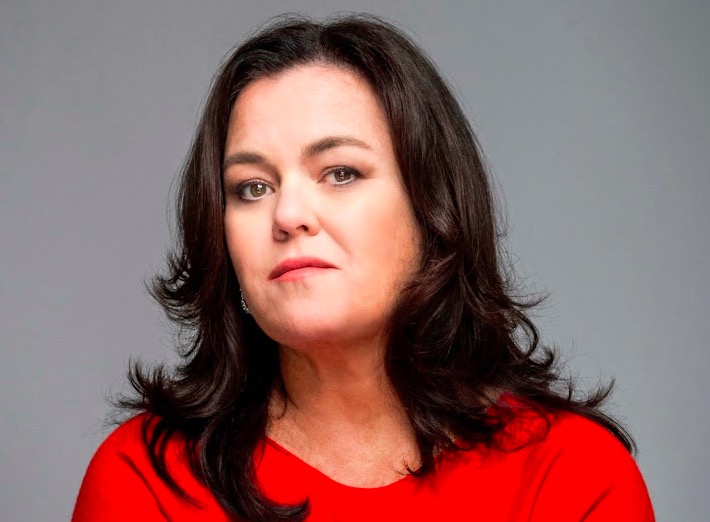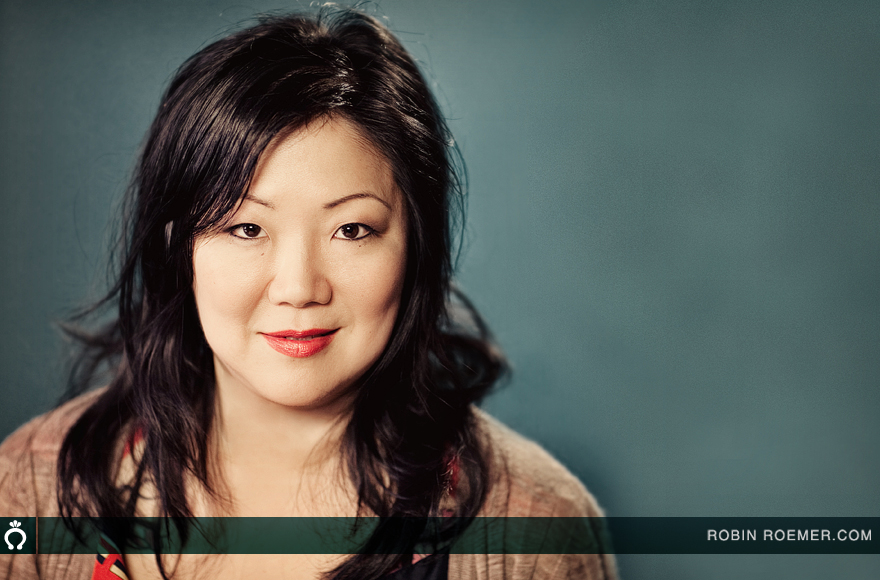feature image via The Pop Hub
Our gal pal true love Kristen Stewart’s recent comments to The Daily Beast about the validity of mental health diagnoses and treatment rubbed a lot of fans the wrong way — and her comments are especially unfortunate considering the disproportionate numbers of LGBT folks who have some kind of psychiatric diagnoses. Like uh, most of the people who work here! And the women on this list.
Ruby Rose, Actress / DJ / Model

Ruby Rose, who has bipolar disorder and is a survivor of sexual abuse, attempted suicide at the age of 12 and, in 2013, announced on twitter that “it is with great sadness that despite everything I have tried in the short time I was given, I am still losing my battle with depression,” before canceling tour dates and taking time off to get healthy. “Being honest about being bullied in school and my bipolar was not so much of a ‘do I or don’t I?’,” she said, “it was waiting for the right time. Even before I knew what making a mark on the world meant, I knew I wanted to make a difference.” She’s an ambassador for digital health platform Headspace, which focuses on mindfulness and meditation, and copes by staying sober and taking medication, admitting “Sometimes you take it for so many years and then it doesn’t work and you’ve got to find a new one – and that period is a really crazy period.”
Mary Lambert, Musician

Lambert’s recent single “Secrets” starts out with the singer coming out as bipolar — a decision she made during one of her “funnest nights ever.” She told DAME magazine that being open about it felt freeing, noting that “we talk about bipolar disorders, or mental disorders in general, usually in a negative light, like Oh, she has bipolar disorder, she went to the mental hospital, or something. But we don’t often talk about functioning people who are successful that have bipolar disorder.” She’s also spoken openly about being a survivor of physical and sexual abuse, hoping her willingness to talk about trauma can be used for “a tool rather than sympathy.”
Angel Haze, Musician

“Mental health problems are like a stain, once they happen in your life you’re scarred by it forever,” pansexual rapper Angel Haze wrote in their Vice magazine column. “You have to wake up every single day and make the decision to be better, and that’s not easy.” Haze was raised in a cult-like religion and is a survivor of sexual abuse and an eating disorder. Haze is open about suffering from depression and the loneliness of not feeling like they have a family, but says they’re doing much better these days. Haze doesn’t hold back from addressing depression and suicide in their music.
Kristy McNichol, Actress

McNichol was a wildly famous young actress just getting started in her career when she walked off the set of a movie under mysterious circumstances. It turns out that the stress of fame and the industry was too much for her to handle on top of her recently diagnosed bipolar disorder, especially during a time when not much was known about the condition. Eventually, McNichol decided that acting just wasn’t her passion anymore and has led a relatively private life ever since, aside from a brief return to the spotlight when she came out in 2012.
Heather Matarazzo, Actress

Actress Heather Matarazzo has worked with the advocacy project Half of Us and The Mental Health on Campus conference, sharing the story of her personal struggles with low self-image and depression.
Me’shell Ndegocello, Musician

The crippling lack of self-esteem and sadness that haunted her childhood resurfaced after the release of her first album, when she fell into a depression — further complicated by the daily oppressions she experienced as a black bisexual woman. The pressure she was under while recording her album in 1993 drove her to a drug addiction, and she credits her son with giving her the strength to get past it. Despite her desire to leave the industry in the ’90s, she is still going strong, recording and touring today.
Rosie O’Donnell, Actress / Comedian

Rosie has been very open about her lifelong struggle with major depressive disorder as well as the profound grief she suffered after her mother’s death when Rosie was only 11. Depression runs in Rosie’s family and her Aunt once attempted suicide before recovering with lithium. She first sought treatment for depression in 1999, and in doing so has employed methods including yoga, giving up alcohol, medication (including Prozac and Effexor), therapy, and, apparently, “inversion therapy” — hanging upside down for 15 to 30 minutes a day.
Alice Walker, Author

During her senior year of college, Walker learned she was pregnant, and considered suicide before eventually getting an abortion — an experience that led her to another depressive episode. She published her first short story, “To Hell With Dying,” while recovering. She discovered meditation as a coping mechanism after her emotionally exhausting divorce.
Laura Jane Grace, Musician

Laura Jane Grace spent much of her life struggling with depression and feeling isolated, and those themes are abundant in her punk band Against Me!’s album “Transgender Dysphoria Blues.” Grace told Grantland, “Dealing with depression is really what a lot of that’s about. On the surface level, the album may be transgender-themed, but underneath it, there are those universal themes — alienation, depression, not being happy — that I think that everybody can really identify with.” Although coming out as transgender had a radical impact on Grace’s mental well-being, she’s open about the fact that it wasn’t a “cure-all.” (However, she’s also found getting tattoos to be therapeutic for her.)
Margaret Cho, Actress/Comedian

The outspoken comedian and actress has been through a whole lot — including depression, alcoholism, anorexia, and drug addiction. In 2001, she appeared on the cover of Rosie magazine for a story entitled “The Faces of Depression.” Cho has also recently come out as a survivor of sexual abuse — an issue she’s addressing head-on in her new song “I Want To Kill My Rapist.” Music, humor and advocacy have been transformative coping mechanisms for Cho, who considers no topic off-limits.
Resources:








Comments
Thank you for writing this. There’s compounding stigma with mental health in the LGBT community. Too many people still assume same-sex attraction or trans identity is a side effect of trauma or mental illness, if not a mental illness itself. It was incredibly disappointing to read K-Stew’s interview. I hoped she would apologize after all the criticism she received, but I haven’t seen one yet.
What did she say?
http://www.thedailybeast.com/articles/2015/09/13/kristen-stewart-on-lgbt-rights-generation-rx-and-overcoming-heartbreak.html
I’m pretty early in the process of my thesis which pretty much answers this question. It is actually the other way around. LGBT youth (and adults really, although I’m focusing on teens) have much greater risk on multiple mental issues and risky behavior. People are kind of “right” to think us gays suffer more from mental illness, but the fact of the matter is that the root of most of those issues are them and their homophobia/heteronormative.
The reality of it is, if your family/friends accept and embrace your gayness you’re pretty much as likely as the rest of the people to develop depression or end up homeless or abuse drugs. IF your friends/family do not, then those risks dramatically increase.
Oh yeah, that’s what I was trying to say! It’s not surprising that so many LGBT people experience mental illness given that we live in such a homophobic/transphobic society. It can be hard to speak about our experiences with mental illness if we’re out. Too many people I know have been asked if their trauma made them gay, or if they tried being straight to fix their depression (being out in church leads to all kinds of unnecessary inquiries).
She did seem to point out people who take antidepressants for emotional issues and not mental issues to be fair. I’ll give her the benefit of the doubt. I wouldn’t be surprised if Kristen has a diagnosis herself by the way.
Thanks for this. I was diagnosed with bipolar and OCD when I was thirteen and the thing that really got me through, as stupid as it sounds, we knowing that Catherine Zeta-Jones also had bipolar and was a super awesome successful lady. Seeing this list of gorgeous, successful queer women who aren’t afraid to speak about their struggles is so inspiring to me and I really hope it lets other girls who are at the point I was so long ago get through their lives with hope, too.
Thank you for this. I have OCD myself, and sexuality and mental illness have always felt like similar struggles to me (you wonder it’s all in your head, you try to “fix” it with prayer, you’re afraid of how the stigmas will affect you, etc.). Didn’t know about most of these celebrities, so it’s super-encouraging to see how well they’ve done for themselves.
This is important!
Kristen has a way of totally fucking up her words in interviews. Being bi (polar/sexual) and a lover of all things Gal Pal Kristen myself, I believe her words may have been clusterfucked as usual. Im a medicated tortured soul and didnt take her words as an attack.
And as for the strong women on and off this list dealing with this daily struggle, fist bump to us all. Keep it strong sisters!
… “it is with great sadness that despite everything I have tried in the short time I was given, I am still losing my battle with depression”… I know that feeling. It’s one of the most frustrating, defeated feelings in the world. Because if all the tools you’ve been given don’t work, what will?
I saw a comment on Facebook about someone wishing there was a highlight on queer celebrities with anxiety, Asperger’s, BPD, & other less talked about diagnoses. Are there any that anyone knows of? I think diagnoses like these (& especially schizophrenia) have even more stigma to them than depression & bipolar, which keeps people from discussing them.
But i also think in some cases, maybe people don’t realize anything’s wrong? I thought my life was a version of normal & “just the way things are, deal with it” until i was diagnosed with Borderline. That explained to me why it was that i could have such difficulty with relationships & emotions & self harm. And if you think about the stereotypical celebrity life, full of drama & substance abuse & rocky relationships, we take it for granted that that’s just how their lives are. Yet there could be the potential for it to be Borderline Personality Disorder, it’s just that because it’s not well known, no one sees it.
I hope this doesn’t seem like a weirdly rambly comment. I’m glad you’re highlighting queer famous people who are dealing with their mental illnesses. I didn’t even know Stewart said anything, & i don’t really want to see what she said… but it’s really disappointing that she would say anything derogatory about anyone with mental illness. I’m glad that the response to that is education & awareness, like this post. :)
i think there’s a few podcasts that are searchable on the Mental Illness Happy Hour that are specific to LGBTQ people.
“Mental Illness Happy Hour”???? That is hilarious; what a great name! I’ll have to look that up; thank you, Rey!
here’s one! http://mentalpod.com/Cameron-Esposito-podcast
i hope you like the site.
well i’m not famous, but hey two out of three! *low-five*
Kidding aside, although they are not queer, Maria Bamford and Rubyetc (on tumblr) are both wonderful artists who use their work to advocate for mental health awareness and support, and also include feminist material. Allie Brosh too.
Ms. Bamford has a new Netflix special coming out, Lady Dynamite, that will cover similar material as her youtube special, The Maria Bamford Show, which talks about her experience with mental illness and treatment (Bipolar and unwanted thought syndrome). When I’m really depressed it helps to read/listen to their words and just feel less alone and maybe laugh at their brilliant comedy too.
“I’m taking all my meds and drinking plenty of diet Coo-ooke!” -Maria Bamford.
Hey Autostraddle,
I’m not sure whether there was some intentionality behind your recent series of mental health related round-ups, articles, advice givings, and listings, but whether intentional or random, I’m really digging it.
Keep ’em coming. The community needs them.
agreed!
I think Kristen Stewart stresses out that in our society we tend to discredit people who are emotional, and that anti-depressants are drugs which numb your feelings. It’s not a coincidence.
I think she points to the fact, the medical domains overstep about how much, as human beings, we should feel and react, what level of emotion is valid or supposed to be pathological. There’s a norm. And being very emotional is out of the norm at the moment.
The fact is, sometimes the daily pain one feel, the risk of suicide that comes with it, exist, too. Anti-depressant are supposed to be a response to that risk in the medical domain.
It’s comments like these that stopped me from seeking medication for years for my major depressive disorder. I literally tried every other option other than medication because i had the foolish notion stuck in my head that it would ‘numb’ me. Thankfully i was finally set straight and I’m still here today to say that not only did medication do the opposite of numb me, it also saved my life.
Please stop repeating these harmful ideas about medication. It’s killing people.
Yeah, you know what’s about 385% more numbing than medication? Depression.
YES! Times a million! When I am really depressed, I am numb to everything.
you clearly, clearly don’t understand how anti-depressants work. they do not “numb feelings” though some psychoactive medications do have an effect that could be described that way (ie, benzodiazepines). most anti-depressants encourage your body to produce more serotonin and/or norephinephrine, neurotransmitters that don’t just make you “happy” (they don’t do that at all actually…) they allow your brain to function normally. as in, your memory works again, your attention span works. you have access to a normal range of emotions when events in life provoke them, including happiness and sadness, instead of the numbness many feel with depression, or the perpetual sadness provoked by nothing at all that others feel with depression.
if you don’t even know how anti-depressants work, you really shouldn’t condemn them. proverbially: don’t talk about what you don’t know about.
Idk, I feel like there is some truth in the idea that the way we medically treat people is influenced by our discomfort with emotion (I’m not saying at all that medication is bad).
For example, one of my loved ones suffers from poor mental health in general, and is prone to high outbursts of emotion that are out of the ordinary in the current social standard. This is a big part of why/how people stigmatize her and want her to be hidden.
I suspect that the prejudice we have against people who display strong emotion, coupled with the one against mentally ill people, influences what kinds of effects we want to engineer via medication.
Hi. I registered just to reply to this. (Well, I have been considering it for awhile, but you know how depression can mean you don’t stuff? That.) I have no idea what I want to say, so I’ll probably rant for quite a bit. My first post. Hello, everyone. :)
The idea that antidepressants – or anxiolytics, for that matter – “numb you” as opposed to allowing you to feel emotions as they would be normal for you is damaging enough, but mentioning (other) people’s discomfort with emotions as a factor too?
I’ve been depressed for years, and it’s mostly been numbness, a horrible emptying of everything I used to be, just lessening more and more every year. And then I finally went to a psychiatrist. She asked me if I was suicidal, and I said I was, but I wasn’t planning, so it was no big deal; my issue was that I was increasingly a potential danger to others. The one emotion I feel when depressed is anger. At anything, anyone. I get angry at the drop of a hat, those “outbursts of emotion” that mean in one moment, without notice, I can damage relationships, people, maybe even property. Potential destruction of property or physically harming people is a huge nope, because I mostly assess consequences like job loss, being sued, having to pay money. Sadly, no such deterrent exists for being awful to people I like. Anger When Depressed is different than the one I was used to; my mind goes blank, I lose myself, it erases me.
Depression is not a gateway to a rich inner life, no matter how much it was romanticized. My anger is stronger, yes, is no more of an emotion than hunger is. It’s a mostly physiological response that I label as “anger”. It’s like crying without any reason. That’s not being emotional and sensitive and a delicate, special flower. It’s your brain on unbalanced chemicals. Why is this more “you” than who you were before your emotional issues? How is the change not pathological? Because that’s the thing: we do change from our previous functioning. Is it only pathological for people who get depressive symptoms as a side effect of medication they take for unrelated health issues? When I’m really depressed, I can’t sleep. Should that also be part of the daily pain to deal with? Many people don’t have a clear picture of what depression really looks like, beyond sadness and Feeling Things Too Deeply. It’s way more pervasive than that and far less glamorous.
Also i just wanted to add… she may refers indirectly to people taking those anti-depressant as being ” bizarre “. But the fact is you may seem so. You don’t react to all the info from your environnment like you would before your medication… So, taking anti-depressant involves a change of behavior which may maybe feel bizarre to the one who takes the drug but also to those who know. Maybe ? Plus your reactions are somehow very even, and you may sometimes under-react.. yeah it maybe be weird.
I feel like while anti-depressants -can- numb you and make you underreact, that’s considered as them not working – you tell your doctor, you switch medications. I think it can be really harmful to perpetuate this idea that anti-depressants (and other psychiatric medications) zombie-ify you, because it puts a lot of people off an option that could really help them?
I think if you’re “not reacting to all the info from your environment” or under-reacting to everything, you’re on the wrong medication and/or on too much of it.
Modern medications for things like depression, anxiety, BPD etc. are meant to bring you up to a healthy baseline, not numb you out.
You know when you enter a room and there’s a loud fan blowing, and you get used to it and even kind of forget about it, but talking to and hearing other people and sounds is just that much harder because of it? And then someone turns the fan off, and you realize just how loud it truly was?
That’s the best metaphor I have for when I’ve been successfully been treated with medication. It’s supposed to turn that noise off. That’s all. It’s not supposed to numb you out.
And if it does, my guess is you’re either taking it off-label, or you need an MD/psych. who listens better and takes your feedback more seriously.
@queergirl Thank you for the fan analogy, it really speaks to me.
For a long time I thought that a room full of fans with windows open, the weather spilling in, and holding onto the hope that sunshine would soon dry out the carpet was the only way to live.
I am so thankful that I have moved to a quieter room with central heating, natural light and new good air circulation.
Good. Let’s raise a glass to the quiet places!
I know it wasn’t intentional, but I found your comment a little dismissive. If your medication isn’t working it doesn’t mean you or your doctor are necessarily doing something wrong. Psychiatric medication works well for some people, but many others really struggle to find the right one/s, even with a competent and supportive doctor (which a lot of people don’t have access to). For many, finding a medication regimen that both works and doesn’t have serious side effects is extremely challenging, if not impossible. I’ve had friends and family members try just about everything without ever having that “turning off the fan” moment.
Personally, I’m a huge advocate of therapy (alone or in conjunction with medication, depending on an individual’s needs). Unless you’re lucky enough that your illness is entirely caused by an easily treatable chemical imbalance, you’re going to need to learn to understand and manage your feelings. I am extremely lucky to be able to afford weekly therapy sessions. It’s made an enormous difference in my life and I’m deeply frustrated by how inaccessible it is for most lower income people. Too many end up relying on medications that either don’t work, don’t provide sufficient relief, or cause problems of their own because it’s cheaper to hand out pills than it is to pay for the long-term therapy that many of us require for optimum health. I’m not anti-pyschiatric medication in any way (I’ve taken it and found it helpful, at points in my treatment), but I do think it has some significant limitations.
Hi Dialethia! Medication is definitely an imperfect science, and talk therapy is vitally important for many people, including myself.
I was anti-medication for many, many years and I still fight against the parts of me who feels I should just be able to cure myself with talk, which is why I think it’s so important now to acknowledge just how helpful it can be. Not attempting to dismiss anyone else’s experience, tho.
Therapy works best in conjunction with medication.
Medication works best in conjunction with therapy.
The evidence has shown this, at least according to my psychologist and my psychiatrist. Unfortunately, insurance companies and overworked GPs find it much easier to throw pills at someone until they go away.
This conversation always seems to turn combative, and it really doesn’t need to be that way. It’s like saying you can only heal from a broken leg with physical therapy – no. You need a cast, too. In my metaphor, that’s what the medication is, at least for many people.
@dialethia Yes, this!
@queergirl the other day I was trying to explain to my mom how my medication isn’t a magic solution to all my problems. Instead it helps me get to a place where I’m thinking clearly and better able to deal with those things. Next time I think I will use your fan analogy. Thanks.
I love analogies! They are so helpful in so many situations :-D
“… who know you “
Thank you Riese x
<3
I’m really pleased that this article is a thing. Particularly as someone with bipolar disorder, often famous people who have it are mislabelled as having unipolar depression, which is really not the same thing at all. Seeing such prominent women being open about their experiences is really comforting. Thank-you for writing this.
This is a wonderful list. It really is helpful, I feel, to see famous people with mental illnesses discuss them in public and help fight the stigma. Especially celebs with OCD, since I feel a lot of time the perception of it is just ‘overly fastidious about cleaning’ and ignores the really hard aspects of obsessive, harmful thoughts that I’ve experienced, so fighting that false image of it is important to me.
I’d also like to add another wonderful woman to this list! The singer Halsey is a bisexual, biracial woman who speaks up about her bipolar disorder as well. She’s young (in fact, 21 today!) so I feel like younger people, especially younger queer ladies with mental illnesses, can feel that closer connection to her, which is great (also help with that is Angel Haze).
It’s so important that this exists <3
I really appreciate that this exists. Thank you.
Well done on this and also the recent Mental Health round-up article. So important!
Just want to point out that Ruby Rose is actually an ambassador for Headspace National Youth Mental Health Foundation, which provides free/ very low cost care to young people 12-25 years old in Australia and online through a network of centres and a web counselling platform. As opposed to Headspace, which is a UK mindfulness/ meditation app.
Thank you for writing this. When I had C.Diff, and then un-diagnosed PI-IBS as a result, I was crushed under severe depression and anxiety. It felt like I was alone in the world. Only through friends, counseling, and medication was I able to get back on my feet. But the depression still follows me around. I suspect it always will. But I’m not my depression. Nor do I deserve a stigma for it.
Thank you so much for this list and the other articles about mental illness on this site. One of the worst things about depression is the feeling of isolation. After a long day seeing this list full of ladies I admire dealing with many of the same struggles as me was exactly what I needed.
Thank you
There is an amazing graphic memoir by bisexual cartoonist Ellen Forney about being bipolar and an artist. One of the best books I’ve ever read!
https://www.goodreads.com/book/show/13542990-marbles?ac=1
Just reading the headline made me cry.
Hi
I’ve read the reactions to my post, mostly to my saying that anti-depressants numb feelings. I speak from experience with my own medical drugs experience, and the experience of close family members that have to take those drugs time to time when depression overhelm them. So, let’s agree to disagree, but in the good way. :) Maybe anti-depressant don’t have the same side effects on everybody.
: / oh maybe i backscrolled too much. actually there were no bad reactions to my posts. LOL. and there’s no delete button here. Aw.
Thanks for this post! its so easy to fall into thinking that your mental health caps how successful you can be in your life, this really gave me the boost I needed
I so appreciate this article. As a queer gal with bipolar II, I am comforted by the knowledge that I am not alone and I am proud of these celebrities for their bravery and courage in sharing their struggles with the world.
However, I feel compelled to add that this article also triggered some pretty negative feelings. Whenever I see folks who are doing amazing things (and existing in the public eye) while struggling with depression, it makes me feel really badly about myself that I a) can barely function sometimes, much less engage in productive/creative work, and b) am unable to share my diagnosis publicly because it is unsafe in my family situation. Instead of feeling inspired, I just feel worse about my own weaknesses and cowardice.
Does anyone feel similarly?
I mostly feel optimistic. The first antidepressants I was on weren’t that great, but they worked, so I stayed on them for the required months. In a way, it is comforting that I found meds that I know can help. On the other side, it was just relief of the worst symptoms, and I hope for more than that. But these people can function, so I just need to find the antidepressants that are the right fit – is what this article triggers in me.
Besides, when depressed, seeing people in general makes me feel worse about being unable to function, so.
There is an article at https://www.psychologytoday.com/blog/bipolar-advantage/201311/it-gets-better-ending-the-stigma-bipolar-mental-illness that is about being bipolar, bisexual and proud that compares the stigma LGBT people faced by psychiatry and how that is similar to the way bipolar is stigmatized. It is really important for the LGBT community to rally around bipolar people and help remove the stigma.
Love Heather! Her Twitter is hilarious and positive.